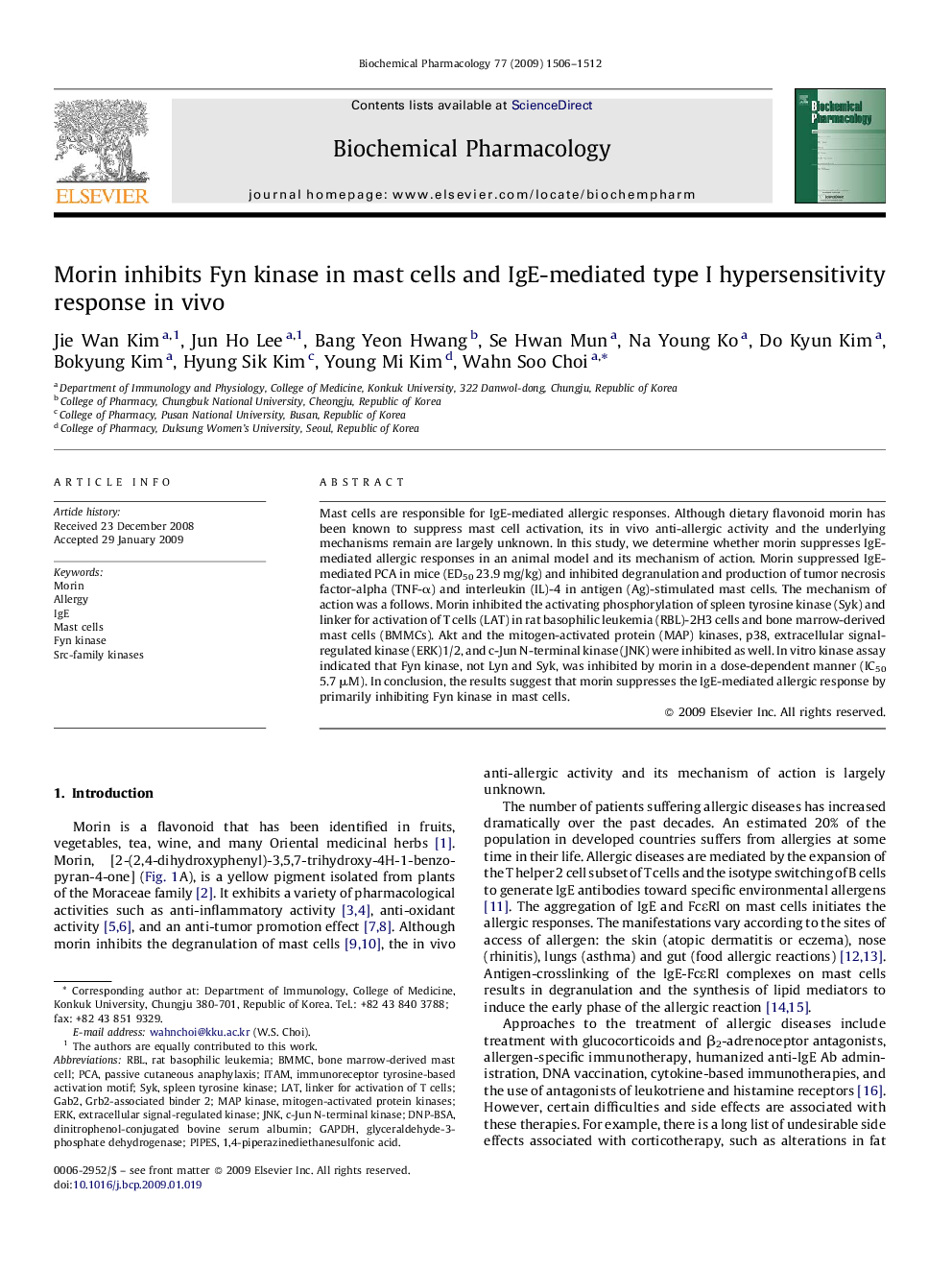| Article ID | Journal | Published Year | Pages | File Type |
|---|---|---|---|---|
| 2514000 | Biochemical Pharmacology | 2009 | 7 Pages |
Mast cells are responsible for IgE-mediated allergic responses. Although dietary flavonoid morin has been known to suppress mast cell activation, its in vivo anti-allergic activity and the underlying mechanisms remain are largely unknown. In this study, we determine whether morin suppresses IgE-mediated allergic responses in an animal model and its mechanism of action. Morin suppressed IgE-mediated PCA in mice (ED50 23.9 mg/kg) and inhibited degranulation and production of tumor necrosis factor-alpha (TNF-α) and interleukin (IL)-4 in antigen (Ag)-stimulated mast cells. The mechanism of action was a follows. Morin inhibited the activating phosphorylation of spleen tyrosine kinase (Syk) and linker for activation of T cells (LAT) in rat basophilic leukemia (RBL)-2H3 cells and bone marrow-derived mast cells (BMMCs). Akt and the mitogen-activated protein (MAP) kinases, p38, extracellular signal-regulated kinase (ERK)1/2, and c-Jun N-terminal kinase (JNK) were inhibited as well. In vitro kinase assay indicated that Fyn kinase, not Lyn and Syk, was inhibited by morin in a dose-dependent manner (IC50 5.7 μM). In conclusion, the results suggest that morin suppresses the IgE-mediated allergic response by primarily inhibiting Fyn kinase in mast cells.
Graphical abstractMorin exhibits anti-allergic activity by the primary inhibition of Fyn kinase in mast cells.Figure optionsDownload full-size imageDownload as PowerPoint slide
